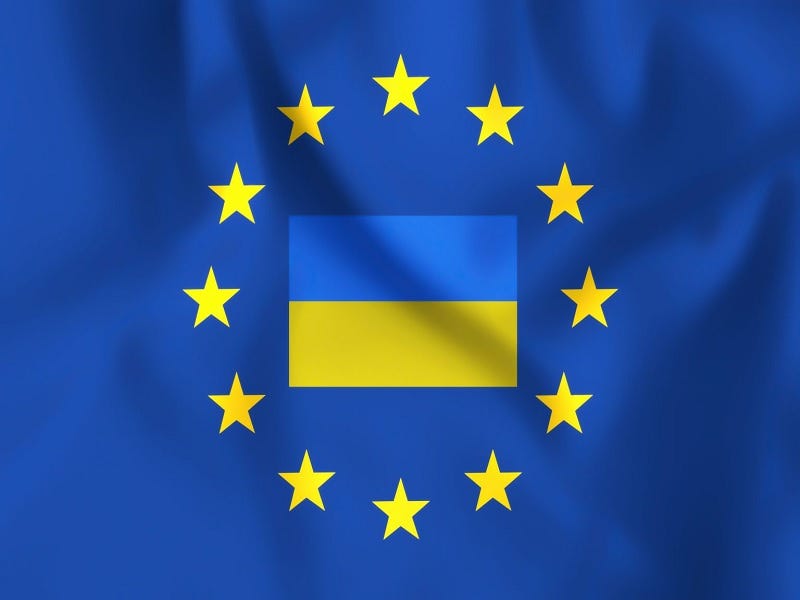Not only does Ukraine objectively lack the requisite qualifications, but its large agricultural industry would destroy existing members’ if it were to join, who are expected to impede any substantial progress on this process for that reason.
US National Security Advisor Jake Sullivan praised the EU’s decision to open accession talks with Ukraine, which Hungary didn’t veto after receiving over €10 billion in unblocked funds, but this decision is solely symbolic and won’t amount to membership anytime soon. Not only does Ukraine objectively lack the requisite qualifications, but its large agricultural industry would destroy existing members’ if it were to join, who are expected to impede any substantial progress on this process for that reason.
Just like “Removing Ukraine’s MAP Requirement For Joining NATO Isn’t As Important As It Seems”, so too are Ukraine’s EU accession talks. Both decisions were intended to cushion the blow of Ukraine being unofficially barred from membership in both. Neither can formally acknowledge that it’s unrealistic to let that country join their blocs, especially NATO, ergo why they continue stringing it along. For his part, Zelensky predictably spun both as victories, which he did for self-serving domestic reasons.
Political intrigue is deepening in Kiev as preexisting tensions worsen following the counteroffensive’s failure and in the run-up to what many expect to be an forthcoming Russian offensive, thus explaining why the Ukrainian leader wants to mislead his people into thinking that they’ll join the EU and NATO. If he told them the truth, then they’d become even more demoralized, and that could create even greater complications for his new conscription drive and exacerbate rising anti-government sentiment.
Regime change risks are higher than ever since Zelensky’s refusal to recommence peace talks with Russia aimed at reaching a so-called “land-for-peace” deal have angered his Western patrons, who fear that any forthcoming Russian offensive could reverse the gains that they spent over $200 billion to achieve. Moreover, Ukrainians are beginning to wonder whether it was worth abandoning peace talks in spring 2022 under Western pressure after all that they’ve lost since then as the conflict finally winds down.
It's therefore in Zelensky’s domestic political interests to make them think that removing Ukraine’s Membership Action Plan requirements for NATO and its latest accession talks with the EU were the result of continuing to wage NATO’s proxy war on Russia. This false narrative misleads them into thinking that further progress on both is contingent on defeating Russia. If they begin to doubt either of his premises, then they might consider a “Maidan 3”, which could be orchestrated by his rivals and/or the US.
Weaponized protests might be inevitable, but Zelensky is still expected to do all he can to discredit them, including through the aforementioned means of manipulating their perceptions about the conflict. The West also wants Ukrainians to think that their symbolic progress on joining NATO and the EU was the result of continuing to wage NATO’s proxy war on Russia even though the US is increasingly souring on him. This convergence of interests accounts for why both sides still keep up such appearances.
Nevertheless, this narrative rings hollow after Rada member Goncharenko said that “there will be no NATO” for Ukraine and the EU failed to approve €50 billion in funding for Ukraine, which discredits both institutions and Zelensky. This in turn raises the chances of his rivals orchestrating a “Maidan 3” on the pretext that he’s giving people false promises. With this in mind, Ukraine’s symbolic EU accession talks could end up backfiring, but the SBU’s stranglehold on the country might deter that for the time being.




